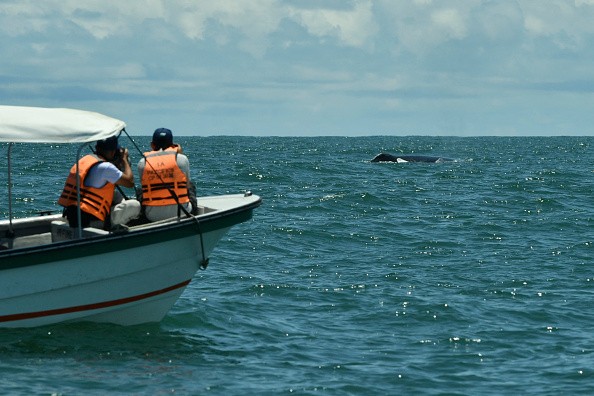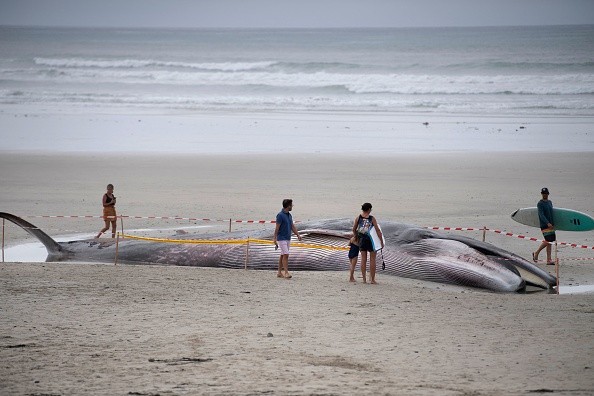A Mediterranean shipping company has rerouted its vessels to protect blue whales on the coast of Sri Lanka after a conservation group's recommendations.
To protect large blue whales on the coast of Sri Lanka, the largest container line company has decided to reroute its ships after conservation groups' research recommendations.
Research on the blue whale population shows that adjusting the shipping lane could reduce by 95% the risk of vessels colliding or striking a whale, the International Fund for Animal Welfare said.
The MSC Mediterranean Shipping Company said that the action was in response to recommendation research by International Fund for Animal Welfare (IFAW), environment groups, and universities.
They have modified navigation guidance based on the recommendations.
As a result of the action, the MSC vessels passing through the Sri Lanka coast will reroute and travel about 15 nautical miles to the south from their vessels' previous route.
Hope to become a permanent policy

According to the MSC's statement to Business Insider, the largest shipping company has taken a significant step to help protect blue whales and other cetaceans on the waters off the coast of Sri Lanka.
The Marine Mammal Center said cetaceans refer to dolphins, whales, and porpoises, which are entirely aquatic.
Moreover, the International Fund for Animal Welfare praised the new navigation rerouting of MSC, adding that whales are off the southern coast of Sri Lanka in the Indian Ocean.
With ships passing the coastal water, there is a high risk of collision in the area where most whales congregate.
The World Wildlife Fund on the threat to whales said that collisions with ships and bycatch hurt the whale population.
The world's busiest shipping lines and ferry lanes overlap with coastal areas where whales travel, breed, nurse, and give birth.
In addition, the oil and gas development can result in noise, causing a disturbance in whale communications.
The animal welfare agency also noted that the rerouting has no impact on other shipping companies.
However, the environmental advocates hope the decision could be permanent changes.
The director of marine conservation in IFAW added that the small changes in MSC significantly affect the endangered blue whales.
She said that whales suffer from a collision.
Meanwhile, Nicolas Entrup, the director of International Relations at OceanCare, reiterated that rerouting is a key hope for blue whales in the Sri Lanka coastal waters.
He added that the Sri Lankan government must take appropriate action and move the shipping lane out from all shipping vessels.
Endangered species

According to the World Wildlife Fund, whales travel over the world's oceans.
They communicate with mysterious and complex sounds. What is more impressive is the size of a blue whale: reaching lengths of more than 100 feet, and they can weigh up to 200 tons.
However, the WWF said there is a growing concern about the situation of whales. The migrations of animals such as whales reveal a pressing environmental issue of ocean peril.
The WWF added that despite whales' gigantic size, six out of 13 great whale species are considered vulnerable and threatened.
Ultimately, whales contribute to fighting the worsening environmental issue of climate change. They capture an estimated 33 tons of CO2 from the atmosphere.
Related Article: Why Do Dead Whales Explode? Experts Warn People to Run If They See This on the Beach
For more similar stories, don't forget to follow Nature World News.
© 2025 NatureWorldNews.com All rights reserved. Do not reproduce without permission.





